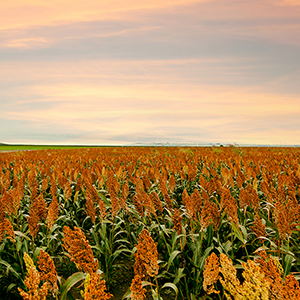 The Issue
The Issue
Forgotten Foods: Untapped potential for sustainable food systems
Four food crops - wheat, maize, rice and soybean - provide two-thirds of the world’s food supply.
Forgotten crops—or Neglected and Underutilized Species (NUS)—and the foods derived from them, have immense untapped potential within sustainable food systems. They cultivation is based on ancestral knowledge which has not been placed at the center in formal research They provide:
- Healthy, nutritious foods for local communities
- Resilience to changing weather, climate change, pests, diseases
- Rich diversity in agro-ecosystems and landscapes
- Protection of farmers’ livelihoods and cultural traditions
The Action
The Forgotten Voices of Farmers
For centuries, smallholder farmers have selected, conserved, exchanges and improved these crops, supported by their own traditional knowledge systems and experimentation processes.Yet most of these crop species remain neglected, under-resourced and underutilized in the global food system.
Research on these crops has received very little finance compared to staple crops, despite their greater sustainability.
Partners in GFAiR recognize that forgotten crops/foods can be part of a sustainable model for agricultural production, but only if
- Farmers themselves drive the transformation
- Farmers are recognized as the main agents of change
- Farming communities are recognized custodians of knowledge and equal partners in developing innovative practices and products
- Farmers derive fair returns to guarantee their long-term success and livelihoods.
Expected Results
This Collective Action aims to:
capture shared values, operational principles and concrete strategies to empower smallholder farmers to demonstrate the vast potential of their crops give farmers voice and agency concerning their particular challenges and needs transform research and innovation systems in favor of forgotten foods/crops and of farmers’ traditional knowledge systems and governance.
Global Manifesto on Forgotten Foods
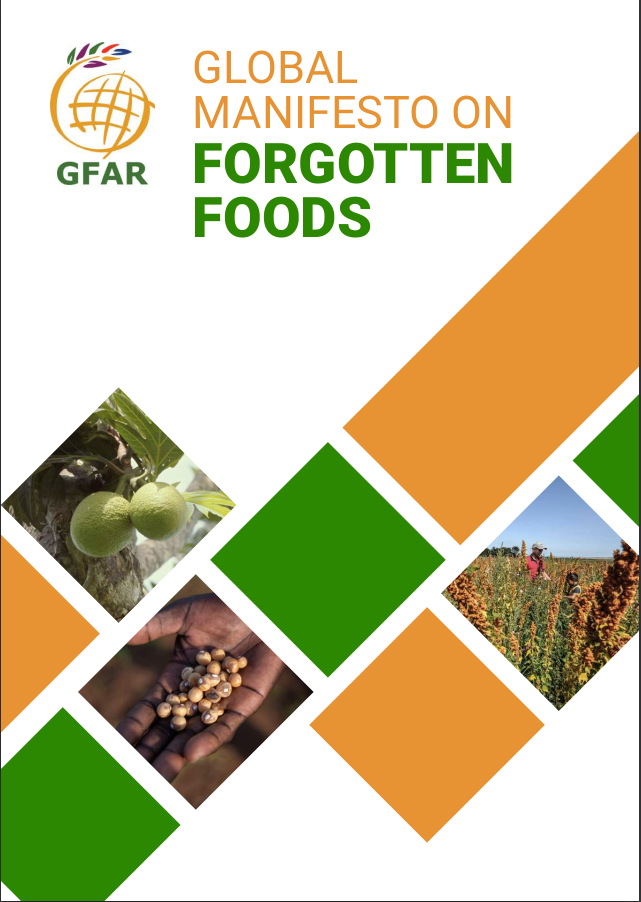 The Global Manifesto on Forgotten Foods is the result of a broad and intensive consultation process carried out in Africa, Asia-Pacific, Europe and the Middle East . It was facilitated by GFAiR as part of its Collective Actions to Empower Farmers at the Center of Innovation; led by a coalition of Regional Research Organizations and their partners, in particular, AARINENA, APAARI, FARA; and supported by CFF, and the Alliance of Bioversity International and CIAT. In this process, thousands of actors from many countries took part in research activities, data analysis, presentations and discussions, deliberations and debates, and in the drafting of three regional manifestos on forgotten foods (see Annex 2 for the numbers of participants and Annex 3 for the names of organizations involved); eventually resulting in this concise and synthetic document based on consensus. Actors included members of farmer organizations, civil society and community-based organizations, women and youth organizations, research, extension and development organizations, private sector entities, and government agencies. The scale and scope of this initiative are unprecedented and represent a big step forward on the global forgotten foods agenda.
The Global Manifesto on Forgotten Foods is the result of a broad and intensive consultation process carried out in Africa, Asia-Pacific, Europe and the Middle East . It was facilitated by GFAiR as part of its Collective Actions to Empower Farmers at the Center of Innovation; led by a coalition of Regional Research Organizations and their partners, in particular, AARINENA, APAARI, FARA; and supported by CFF, and the Alliance of Bioversity International and CIAT. In this process, thousands of actors from many countries took part in research activities, data analysis, presentations and discussions, deliberations and debates, and in the drafting of three regional manifestos on forgotten foods (see Annex 2 for the numbers of participants and Annex 3 for the names of organizations involved); eventually resulting in this concise and synthetic document based on consensus. Actors included members of farmer organizations, civil society and community-based organizations, women and youth organizations, research, extension and development organizations, private sector entities, and government agencies. The scale and scope of this initiative are unprecedented and represent a big step forward on the global forgotten foods agenda.
Partners
Members of the three Regional Networks, AARINENA, APAARI and FARA, and their partners, particularly AFA/Asian Farmer Association and the Swaminathan Foundation.
Futher information
- Forgotten food and the UK diaspora of African origin
- London's African culinary scene
- The UK Afro-Caribbean grocery market: Ade's Foods'
- Cooking the Food of Nigeria
Forgotten Foods: A GFAR/GFAiR Collective Action Success Story
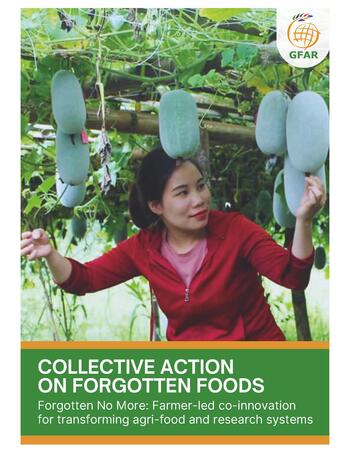
The Collective Action on Forgotten Foods represents one of the most impactful and forward-looking partnerships under GFAR (now GFAiR)—reviving neglected and underutilized crops (NUS) to transform food systems, improve nutrition, and empower marginalized communities. Its story spans over two decades, beginning with the early recognition of "forgotten foods" as a global agri-innovation frontier.
Origins: A Global Innovation Priority (1999–2000)
The term “forgotten foods” began gaining traction in 1999–2000, when GFAR convened dialogues on rethinking agricultural innovation to serve smallholders, especially in marginal environments. At the GFAR2000 Global Conference in Dresden, neglected and underutilized species (NUS) were formally acknowledged as a global priority for research and innovation. These species—locally adapted, nutrient-dense, and often resilient to climate stress—had long been marginalized by mainstream agricultural R&D. GFAR partnered with actors like Bioversity International and the CGIAR NGO Committee to elevate the status of NUS in policy, research, and funding agendas.
Rising Momentum: From Advocacy to Collective Action
Through the 2000s and 2010s, GFAR supported global awareness-raising on the role of forgotten foods in combating hunger, biodiversity loss, and the erosion of traditional knowledge. These efforts laid the groundwork for the formal establishment of the Collective Action on Forgotten Foods, launched as part of GFAR’s restructured Collective Action mechanism in the late 2010s.
Key milestones included:
- Formation of a multi-stakeholder partnership, including farmer organizations, public research institutes, NGOs, UN agencies, private sector, and youth;
- A 2021–2022 global dialogue series on forgotten foods, led by GFAR and partners, identifying barriers and opportunities across regions;
- The “Forgotten Foods Manifesto” (2022), calling for co-research, policy support, and investment in neglected crops;
- Country-level engagement, such as support to India’s Odisha Millet Mission and integration of forgotten foods in school feeding, biodiversity policy, and climate resilience programs.
A Paradigm Shift in Food Innovation
Today, the Forgotten Foods Collective Action is:
- Restoring indigenous food systems, valuing women's and communities’ knowledge;
- Stimulating demand and markets for climate-resilient local crops;
- Rebalancing agri-research priorities toward diversity, equity, and sustainability;
- Driving policy shifts at national and global levels.
In September 2024, 3 consortia were selected among 21 applications for the GFAiR call for "Letters of Intention (LoI) on Forgotten Foods”: Swaminathan Foundation (India) the University of Ghana (Ghana) and The Food Bridge (Belgium). The 3 selected consortia focus on farmer-led conservation practices which are central to reviving forgotten foods. The Food Bridge (Belgium) manages a Food Heritage Project in Nigeria and Ghana with the intention of leveraging the access to the African diaspora food market, to promote consumption of indigenous African food, support rural farmers to start growing these food crops and access to premium market - see: 8th African Diaspora Agrofood Forum on Forgotten Foods.
Food Bridge coordinates the Collective Action on Forgotten Foods
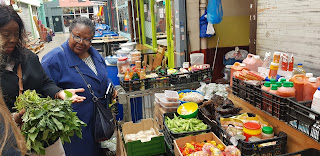
The Food Bridge (Belgium) coordinates the Collective Action on Forgotten Foods because of its leadership in bridging African diaspora markets with rural African farmers, its proven experience in food heritage projects in Ghana and Nigeria, and its ability to connect traditional knowledge, entrepreneurship, and policy advocacy—making it uniquely positioned to lead a global movement to revive and scale indigenous foods across continents.
It identified two specific pathways to promote the consumption - and hence the demand for - forgotten foods:
- the increased demand by the diaspora of nutritious forgotten foods of their country of origin and
- the role of African Diaspora Food SMEs which offer new market niches for farmers’ organizations and agri-food SME’s.
Between January and June 2025, the Collective Action on Forgotten Foods mobilized a diverse and dynamic set of activities—including proposal writeshops in Ghana and Nigeria, intercontinental consortium building, pilot deployments of the GAMAAL app, and high-level advocacy campaigns—that demonstrated how traditional knowledge, digital tools, and inclusive partnerships can converge to elevate opportunity crops. By centering women-led enterprises, diaspora engagement, and regional research capacity, these efforts serve as a scalable model for integrating biodiversity, nutrition, and cultural heritage into food systems transformation—offering a compelling blueprint for global action on neglected and underutilized crops.
The market study conducted in London was a pivotal step in understanding the demand, cultural relevance, and commercial potential of forgotten foods within the African and Caribbean diaspora communities. By analyzing consumer preferences, purchasing behavior, and existing supply chains, the study will provide critical insights into how opportunity crops—such as fonio, bambara groundnut, and African leafy vegetables—can be positioned in diaspora markets as both culturally resonant and nutritionally superior alternatives.
These findings cannot only inform product development and branding strategies but can also strengthen the case for policy support and investment in transcontinental value chains that reconnect African smallholder producers with diaspora consumers seeking to reclaim food heritage.
Multi-donor funded initiative to promote the use of so-called opportunity crops

Crop Trust has launched (19/03/2025) the Power of Diversity Funding Facility (PDFF). This transformative multi-donor funded initiative will promote the use of so-called opportunity crops across Africa, Asia, the Pacific, and Latin America and the Caribbean.
Initially, the PDFF will focus on 14 high-potential opportunity crops in seven countries, which will be announced when project partners are confirmed.
Backed by an initial investment of €10 million from Germany and €2 million from Ireland, the PDFF will empower farmers to diversify their agricultural systems with resilient and nutritious alternatives to mainstream crops. The German funding will come via KfW, the German Development Bank, and Ireland is providing funding through its Department of Foreign Affairs.
To provide a foundation of knowledge, the Crop Trust has launched an Opportunity Crop Knowledge Base with key information on the crops prioritized by BOLDER partners.
- The BOLDER (Building Opportunities for Lesser‑known Diversity in Edible Resources) initiative—funded by the Government of Norway under the broader BOLD program—aims to conserve underutilised, nutritious crops and make them accessible to smallholder farmers. Funded by the Government of Norway, BOLDER works to secure the diversity of these crops, and make it available to smallholder farmers in four African countries.
- Budget: USD 22.4 million.
- Project period: 2024 to 2030.
- Target countries: Benin, Ghana, Tanzania, and Uganda.
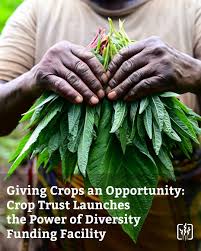
BOLD (Biodiversity for Opportunities, Livelihoods and Development) is a 10-year global initiative funded by the Government of Norway, coordinated by the Crop Trust to protect and utilize crop diversity for food and nutrition security.
- Budget: now carries a total budget of ≈ USD 80 million (up from the initial USD 58 million committed at launch).
- Project Period: 2021 to 2030—a full decade-long initiative.
- Partner Countries: The core implementation, centers on 15 national genebanks spread across Africa, Asia, Latin America and the Near East. Allied work centres on crop improvement, seed systems and “opportunity crops” in four pilot countries: Uganda, Tanzania, Ecuador, and Bhutan.
